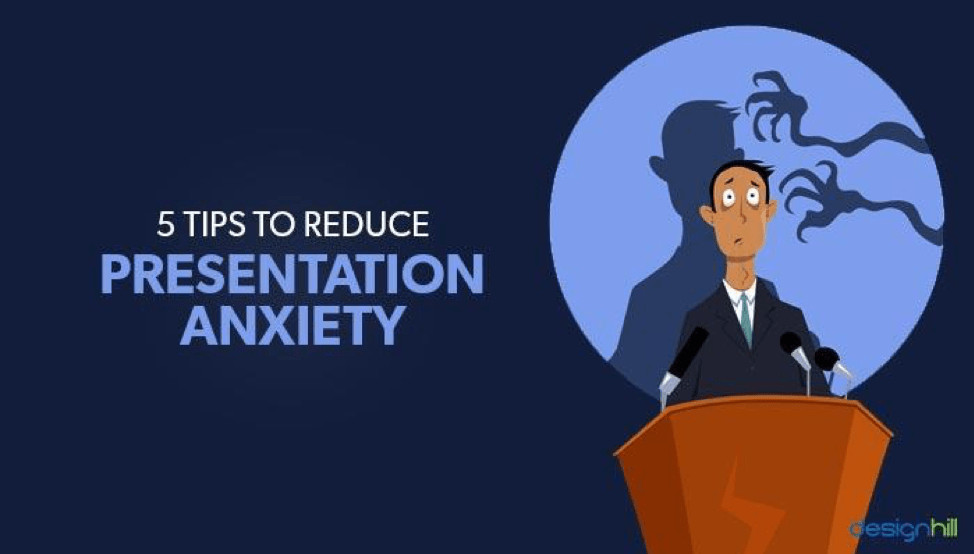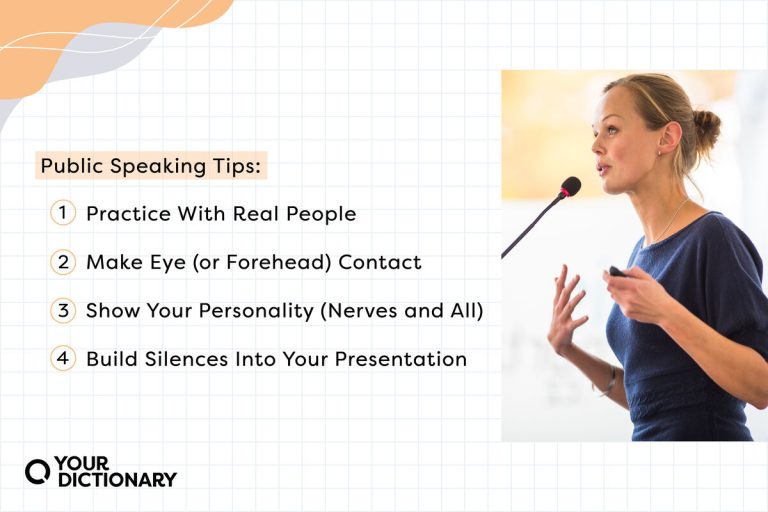Why Do I Panic Before Public Speaking?
Public speaking panic is common due to fear of judgment and potential failure in front of an audience. This fear stems from anxiety about being scrutinized or humiliated, leading to panic before speaking in public.
Understanding Public Speaking Anxiety
Public speaking anxiety can cause panic and fear in many individuals. The symptoms of public speaking anxiety include sweating, trembling, and a rapid heartbeat. This anxiety often stems from a fear of being judged or embarrassed in front of others.
The causes of public speaking anxiety can vary from person to person, but often include past negative experiences or a lack of confidence. The impact of this anxiety can be detrimental, as it can prevent individuals from expressing themselves effectively or pursuing opportunities that involve public speaking.
It is important to understand public speaking anxiety in order to find ways to cope with and overcome it.
The Biochemical Aspect Of Public Speaking Anxiety
Public speaking anxiety is a common phenomenon that many people experience. The fear and panic associated with public speaking can be attributed to the biochemical aspect of anxiety. Stress hormones play a significant role in intensifying public speaking anxiety. Neurotransmitters in the brain also contribute to this anxious state.
Additionally, genetic factors can make some individuals more susceptible to public speaking anxiety. Understanding the biochemical mechanisms behind this fear can help in developing strategies to cope with and overcome public speaking anxiety. Therefore, it is crucial to address the underlying physiological processes involved in order to manage the feelings of panic associated with public speaking.
The Psychological Aspect Of Public Speaking Anxiety
Public speaking anxiety may stem from a psychological perspective. Fear of judgment and rejection often contributes to panic. Negative self-talk and catastrophic thinking magnify these fears. Past traumatic experiences can also lead to anxiety when speaking in public. It is important to understand these aspects to overcome this anxiety.

Credit: policyviz.com
Strategies To Overcome Public Speaking Anxiety
Public speaking anxiety is a common feeling that many individuals experience. Strategies to overcome this anxiety include preparation and practice techniques. By engaging in Cognitive-Behavioral Therapy (CBT), individuals can learn to manage their anxiety and control their thoughts. Visualization and relaxation techniques are also effective ways to calm nerves before speaking in public.
Through visualizing success and practicing deep breathing exercises, individuals can reduce their anxiety levels and feel more confident. These strategies can be helpful for anyone who experiences public speaking anxiety and wants to overcome their fears. With preparation, practice, and the use of these techniques, individuals can conquer their fear and deliver effective presentations or speeches.
Public Speaking Skills Training
Public speaking can often induce panic and anxiety due to various reasons. One factor could be the fear of being judged by others while speaking. The lack of confidence in one’s speaking abilities can also contribute to this fear. Effective communication strategies play a crucial role in overcoming these anxieties.
By focusing on clear and concise delivery, as well as engaging with the audience, individuals can improve their public speaking skills. Additionally, building confidence and assertiveness through practice and training can help alleviate the panic experienced before speaking in public.
Developing these skills is important not only for professional growth but also for personal development. Enhancing public speaking abilities can lead to increased self-assurance, improved communication, and better opportunities in various aspects of life.
Seeking Professional Help For Public Speaking Anxiety
Public speaking anxiety is a common experience that can cause panic. Seeking professional help is vital to overcoming this fear. Therapeutic interventions provide effective strategies for managing public speaking anxiety. Support groups and peer support offer understanding and encouragement to those facing similar challenges.
Working with a speech coach or public speaking expert can help individuals build confidence and develop effective communication skills. By utilizing these resources, individuals can take steps towards conquering their public speaking fears and gaining control over their anxiety.
Overcoming Public Speaking Anxiety Step By Step
Public speaking anxiety is a common fear that many people experience. One reason why individuals panic before presenting to a large audience is the fear of being judged or criticized. Overcoming this anxiety step by step is crucial. Gradual exposure and desensitization techniques are effective ways to gradually reduce fear and increase confidence.
By gradually exposing oneself to public speaking situations, such as speaking in small groups or joining a public speaking club, individuals can become more comfortable and less anxious over time. Additionally, identifying and challenging negative beliefs about public speaking is important.
By recognizing and replacing negative thoughts with positive ones, individuals can change their mindset and reduce anxiety. Celebrating small victories along the way is also essential. Each successful speaking engagement adds to one’s confidence, making it easier to tackle future speaking opportunities without panic.
With time and practice, public speaking anxiety can be conquered.
Conquering Public Speaking Anxiety: Success Stories
Public speaking anxiety is a common phenomenon that affects many individuals. It is natural to feel panic and anxiety before speaking in public as it involves being the center of attention and potential judgment from others. However, there are success stories of individuals who have conquered their public speaking fears.
In this blog post, we will explore personal accounts of individuals who have overcome their public speaking anxiety and emerged as confident speakers. They will share tips and strategies that have helped them navigate their journey towards improved public speaking skills.
These individuals serve as inspiring examples of transformation and growth, proving that it is possible to overcome public speaking anxiety with determination, practice, and the right mindset. Their stories offer valuable insights and encouragement for anyone seeking to conquer their fears and become a more effective and confident public speaker.
Frequently Asked Questions Of Why Do I Panic Before Public Speaking?
How Do I Stop Panic Attacks Before Public Speaking?
To stop panic attacks before public speaking, try these strategies: 1. Practice deep breathing exercises to calm your nerves. 2. Engage in positive self-talk and visualize yourself delivering a successful speech. 3. Prepare thoroughly by rehearsing your presentation multiple times. 4.
Use relaxation techniques like progressive muscle relaxation or meditation to reduce anxiety. 5. Avoid caffeine and nicotine, as they can increase anxiety levels. 6. Start with smaller speaking engagements to build confidence gradually. 7. Utilize a support system, such as friends or a public speaking group, for encouragement and feedback.
8. Focus on the audience and their needs rather than dwelling on your own anxiety. 9. Use physical movements, such as hand gestures or walking around, to release nervous energy. 10. Consider seeking professional help from a therapist if your anxiety persists and affects your daily life.
By implementing these techniques, you can effectively manage panic attacks before public speaking and deliver a confident, engaging presentation.
Why Do I Panic When Speaking In Public?
Public speaking can trigger panic due to various reasons. One common cause is the fear of judgment from others. Being the center of attention can make you self-conscious and worry about making mistakes. Another factor is the pressure to deliver a flawless performance.
Nervousness can overpower you when you feel inadequately prepared. Lack of confidence or low self-esteem can exacerbate this anxiety. The fear of forgetting your lines or stumbling through your speech can be overwhelming. Additionally, the fear of public humiliation or embarrassment can contribute to panic.
To overcome these anxieties, practice and preparation are essential. Familiarizing yourself with your content, rehearsing your speech, and gaining confidence in your abilities can greatly alleviate the fear of public speaking. With time and experience, you can gradually build your confidence and reduce panic when speaking in public.
What Are 3 Causes Of Speech Anxiety?
The three common causes of speech anxiety can be attributed to fear of judgment, lack of preparation, and past negative experiences. Fear of judgment stems from worries about being evaluated or criticized by others. Insufficient preparation, such as not practicing or researching adequately, can lead to anxiety about forgetting or stumbling over words.
Previous negative experiences, such as embarrassing or traumatic incidents during public speaking, can create a fear of repeating those experiences. To overcome speech anxiety, individuals can practice mindfulness techniques, engage in relaxation exercises, and gradually expose themselves to public speaking situations.
Professional assistance, such as speech therapy or cognitive-behavioral therapy, can also be sought to address the underlying causes of speech anxiety.
Why Do I Panic Before Public Speaking?
Public speaking triggers a fear response because of the anticipation of being judged or performing poorly in front of others. The fear of public speaking is common and can be caused by various factors, such as past negative experiences, lack of confidence, or the pressure to meet expectations.
Understanding and managing your anxiety can help alleviate panic before public speaking.
Conclusion
To conclude, the fear and panic many of us experience before public speaking is a deeply rooted human response. It emerges from our innate survival instincts and the fear of judgment and rejection. However, understanding the reasons behind this fear can help us overcome it.
By acknowledging and accepting our emotions, preparing thoroughly, and practicing regularly, we can develop the confidence to speak in front of others. Utilizing relaxation techniques such as deep breathing and positive visualization can also alleviate anxiety. Additionally, seeking support from friends, family, or professional resources can provide valuable guidance and encouragement.
Remember, public speaking is a skill that can be honed with time and practice. With patience and persistence, we can transform our panic into excitement and become more effective and confident communicators. So, embrace the challenge and seize the opportunity to showcase your unique voice and ideas.



